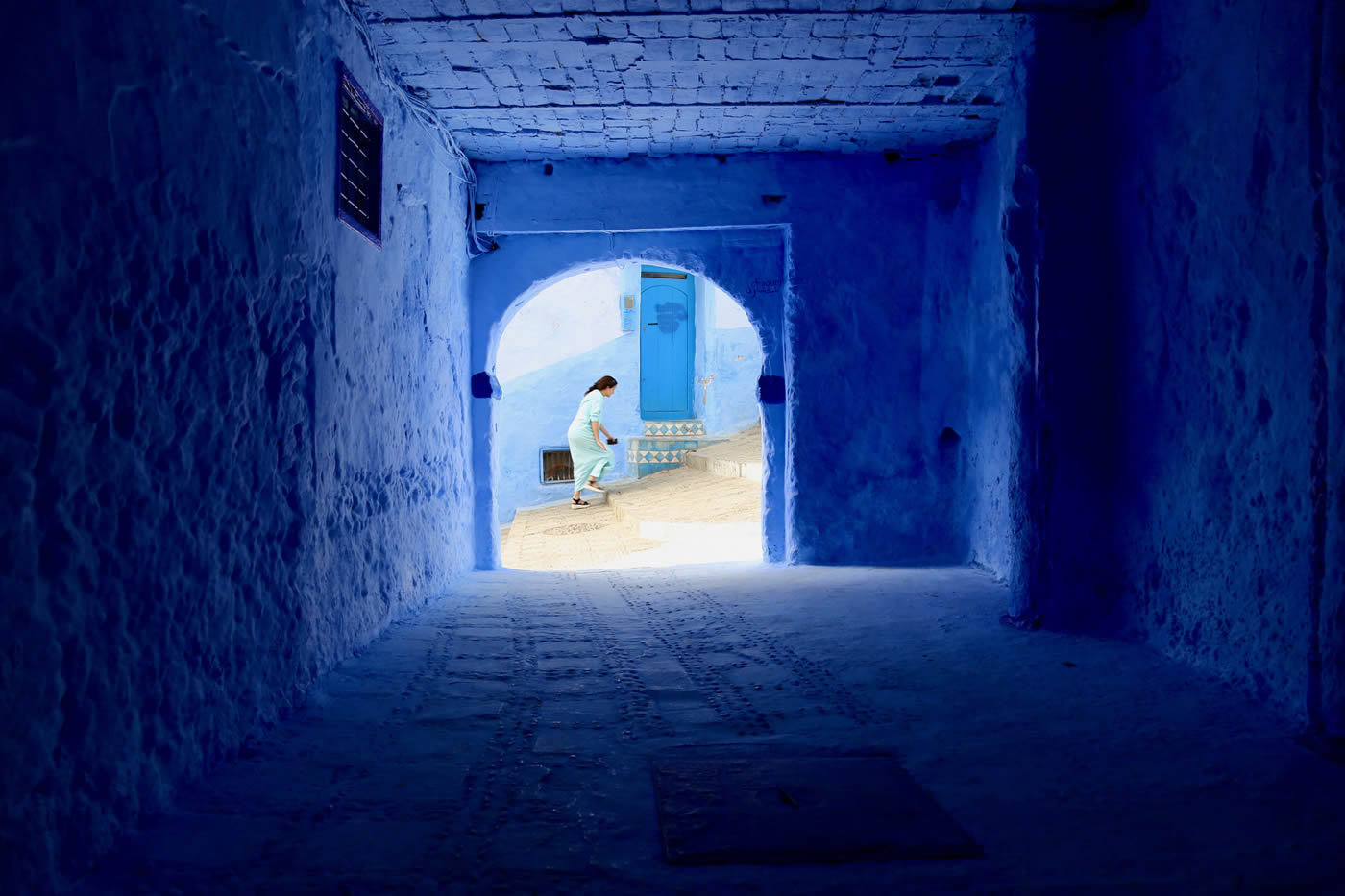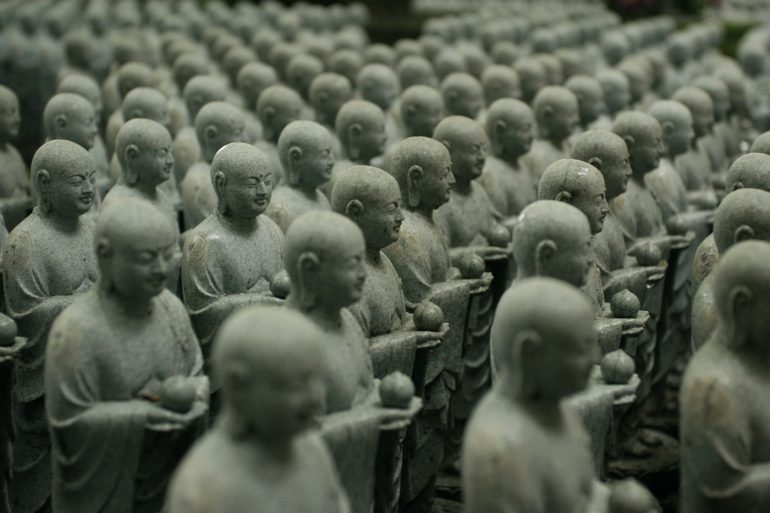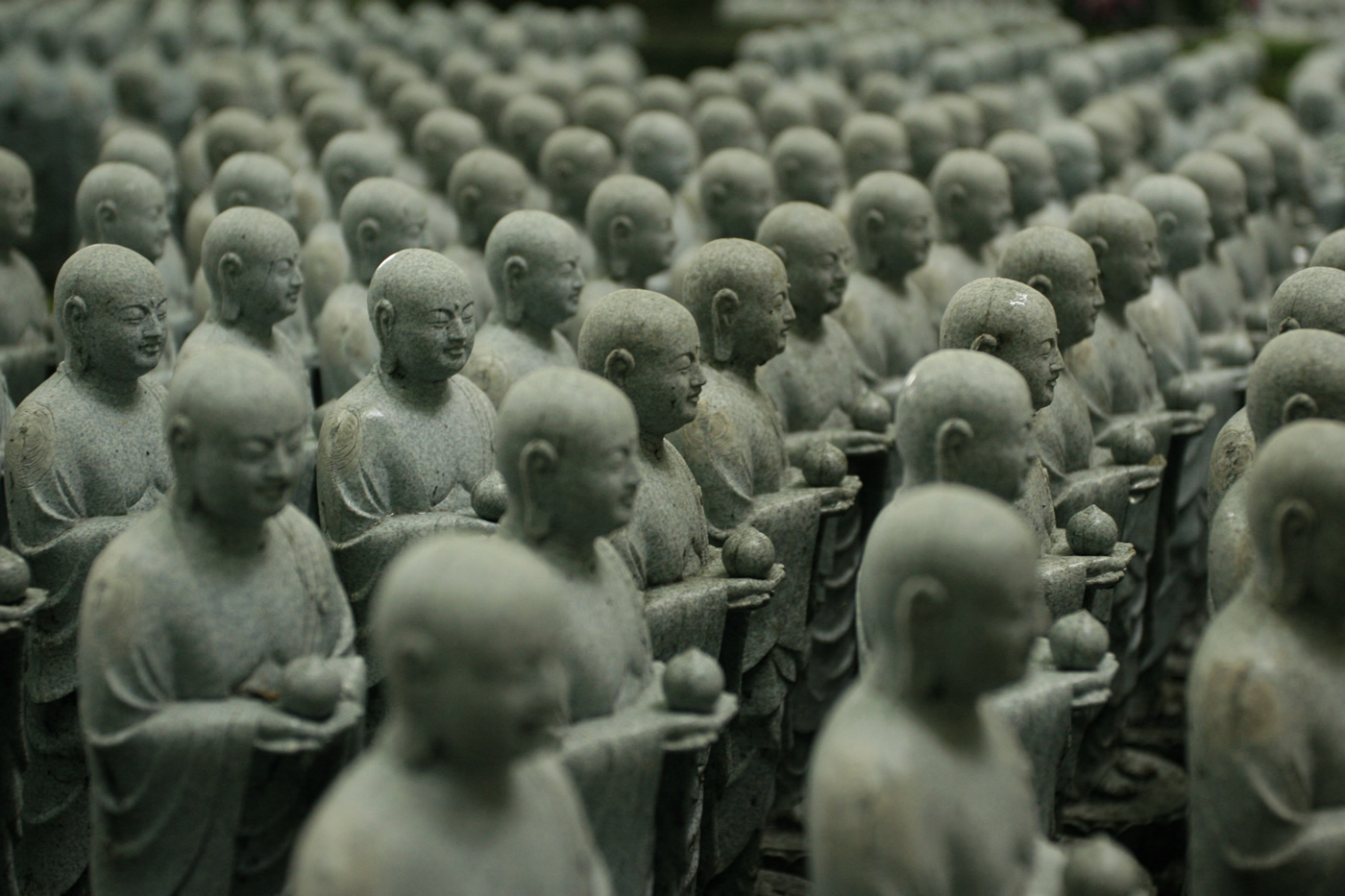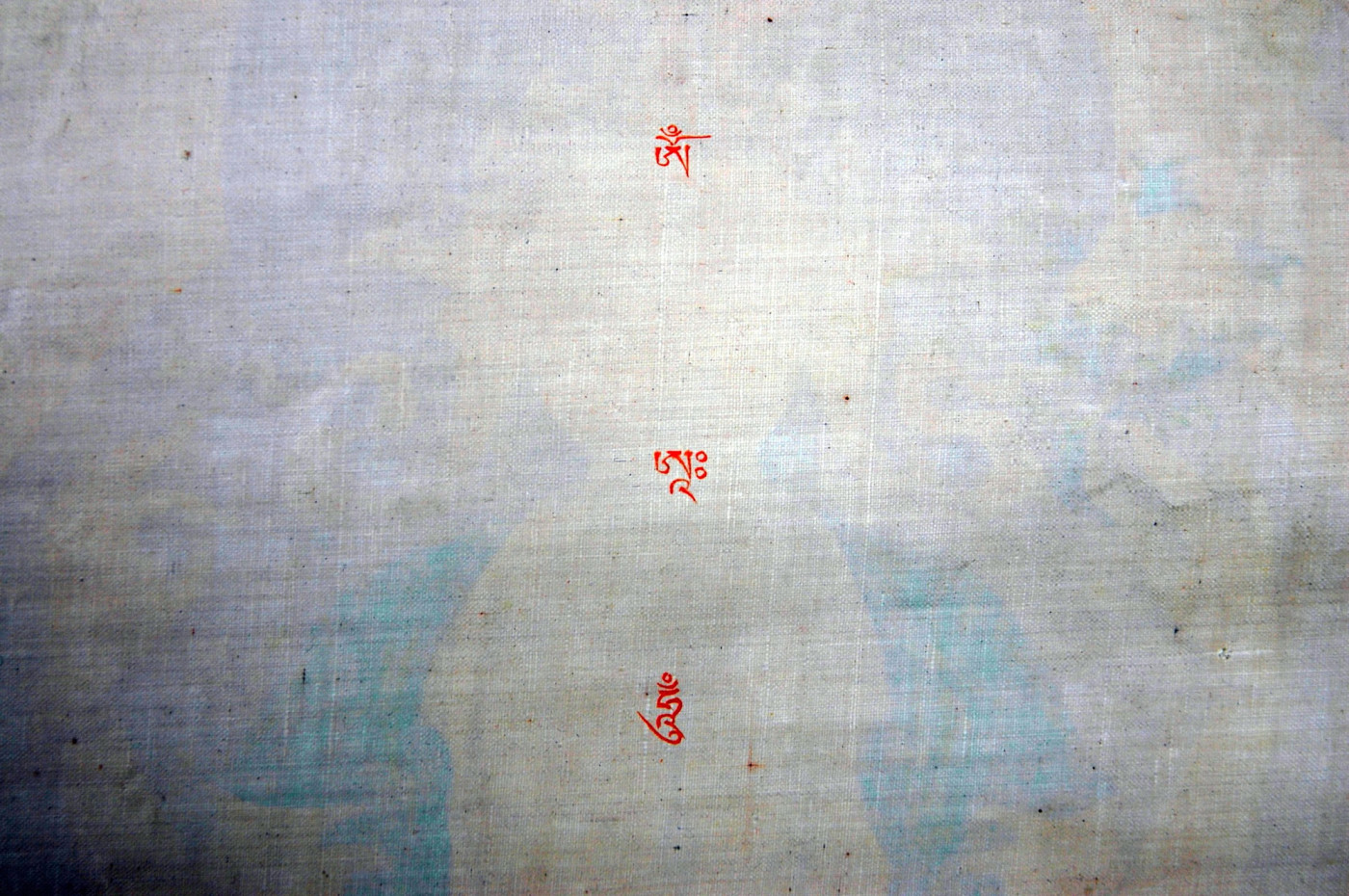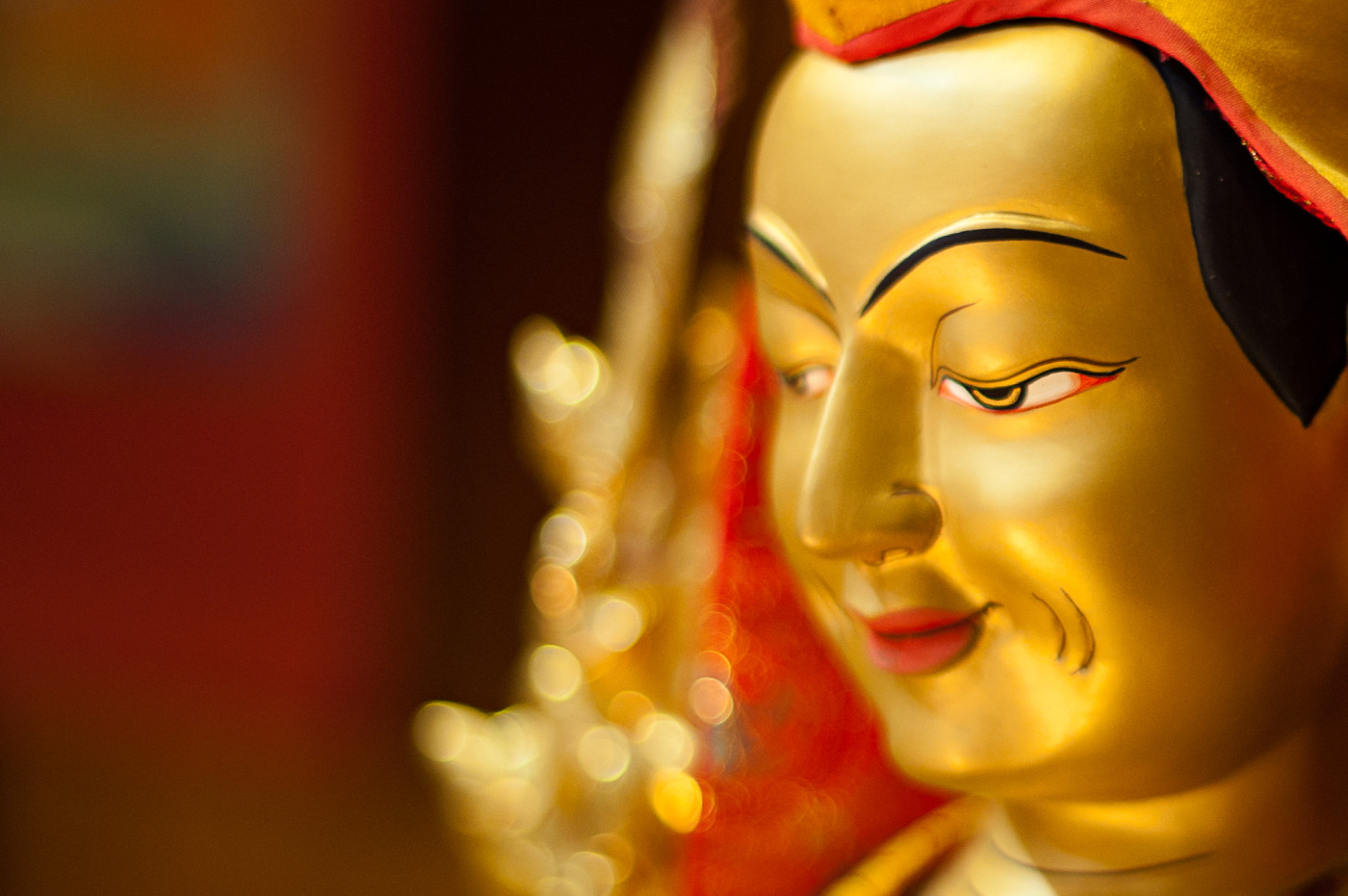Audio
This is the first dictionary entry. We are going to cover the expression BRGYA LA (བརྒྱ་ལ་). GYA (རྒྱ་) as you know means 100. For example, BZHI BRGYA PA (བཞི་བརྒྱ་པ་) is Aryadeva’s: Four Hundred Verses. So, here it means One Hundred. However, often times it can just mean a big number of something. For example, DGA’ LDAN LHA BRGYA MA (དགའ་ལྡན་ལྷ་བརྒྱ་མ་), the famous ritual to Je Tsongkapa, we can translate it as The Thousand Angels of the Heaven of Bliss. So, in that case, BRGYA can mean one thousand, or a zillion or something like that. Then, this “BRGYA,” with a prefix letter, BAO-RA-GATA-GA-YATA-GYA is not to be confused with RA-GATA-GA-YATA-GYA, which means “wide”. So, obviously they are related. “Wide” and “one hundred” are related. Furthermore, that “GYA” without the prefix letter is found in words like “gyatso” (RGYA MTSO / རྒྱ་མཚོ་) which means wide lake, which is the Tibetan word for “ocean.” Which, by the way, is mispronounced in eastern Tibet (Amdo region), “gyamtso.” So, you might hear it as “gyamtso,” when they pronounce the prefix letter (MA / མ་) of the “tso.”
So, RGYA / རྒྱ་, can mean “one hundred” and in our case now, we have the word BRGYA LA (བརྒྱ་ལ་), but BRGYA LA is an idiom in Tibetan, which means “in the unlikely event.” So, in our case here we have a case where someone has broken their relationship with their teacher. Then BRGYA LA, if they are reborn as a human means: “even if by some remote chance they are reborn as a human.” So you can translate in this case, BRGYA LA, “in a hundred” as “some remote chance” or, “if by some remote chance they are born as a human.”


